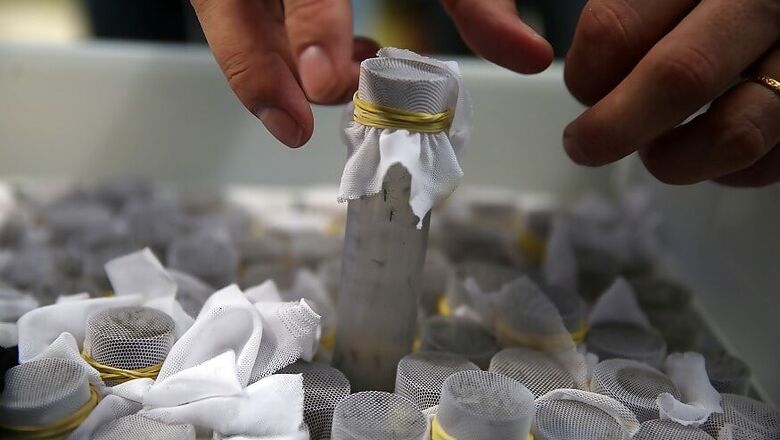
views
Krijn Paaijmans and Silvie Huijben is a dynamic pair of researchers from the Arizona State University School of Life Sciences who study -- mosquitoes. The assistant professors met while in college in the Netherlands and at that time Paaijmans got hooked on studying mosquitos after they caught his interest while working on a research project in Kenya, stated an Arizona State University report.
While Huijben admits she was not really interested in malaria, she was looking for a master's degree project in parasitology and Paajimans knew of one involving penguins’ getting malaria at the zoo.
Hujiben spent her master's degree learning about the species of malaria infecting these penguins and the species of mosquito that carried it. Later, they married in Pennsylvania, while she was working towards her PhD.
The couple now stays in Arizona, where they are both studying mosquitoes.
Their Arizona researches are based on the fact that they would often observe mosquitos sit on insecticide-treated bed nets for hours without getting killed in minutes. Considering the fact that these carry malaria, Hujiben is now studying insecticide resistance in mosquitos, particularly those that carry malaria, and is looking for ways to prevent it as well.
While there are several computer models that speak of ways to reduce resistance, there are no lab tests or on field observations.
According to the Arizona State University report, there are two main ways to reduce resistance. One way is to keep on rotating the insecticides being used, thus not allowing them to develop resistance.
The other is to treat half of the village with one drug, and with the other, a separate drug. Thus even if a mosquito develops resistance to one, it will die when exposed to the other.
Paaijmans work is more focused towards creating new trapping and deterrence tools in the field. While mosquito-nets prove beneficial at night, the insects still bite outside during the day or are already in the house before a person goes off to sleep. His work focuses on different types of traps that can attract the mosquitoes and catch them at night.
Speaking to ASU, Paaijmans says that while the standard approach to malaria control is by giving bed nets and spraying houses, there are a lot of areas where mosquitoes bite a person before they go to bed.
He is currently working on an electronic mosquito barrier that would create electric fields between wires and those who protest the use of mesh in windows because it reduces airflow in summers could use the technology to keep mosquitos out.
















Comments
0 comment